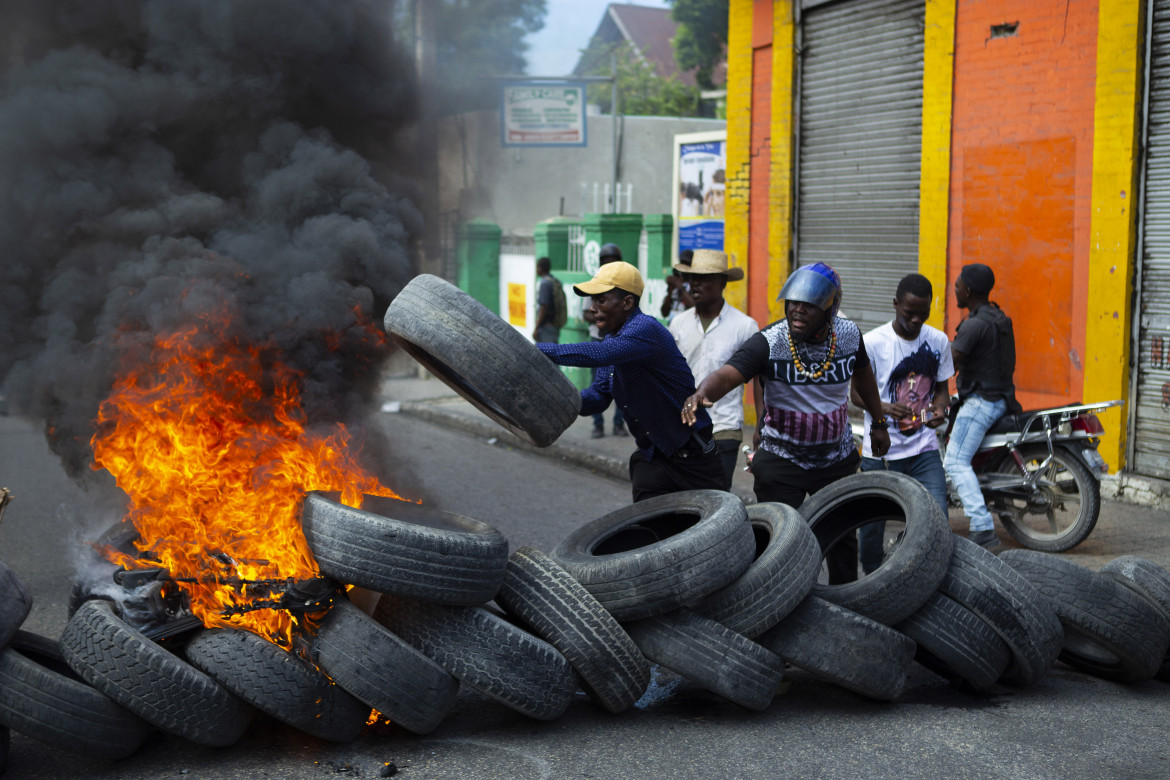Analysis
The arrogance of the ‘banana man’ does not stop the rebellious Haitian spirit
Jovenel Moise survived months of popular uprisings thanks to the unwavering support of the United States, fearful of the advent of a new ‘Castro-Bolivarian’ government.

Nothing seems to be able to break the spirit of rebellion of the Haitian people, inherited from those slaves who, in 1804, gave life to the first free republic on the continent.
Not even the series of dictatorships, coups d’état and corrupt governments that have dotted the country’s history since then, with few exceptions. Nor the devastating earthquake of 2010, the ruinous Hurricane Matthew of 2016, the terrible cholera epidemic brought as a gift by the UN occupation troops or the current COVID-19 pandemic, nor the chronic political and social instability.
Thus, there is no chance that the current president Jovenel Moise will break their spirit of rebellion either. He has survived months of popular revolts thanks to the unwavering support of the United States, fearful of the advent of a new “Castro-Bolivarian” government, and of the Core Group, the “friends of Haiti” of which the U.S. and the E.U. are part along with other countries, who are wilfully blind to the massacres, the dismantling of institutions and the monumental looting of state coffers.
Committed tooth and nail to staying in power, the “nèg banann,” the Banana Man, as the people are calling the businessman who became president thanks to colossal fraud, first imposed by decree a series of measures aimed at strengthening public security, giving total immunity to the agents of the newly created National Intelligence Agency and framing as “terrorism” even acts of simple social protest. Despite the fact that, as sociologist Lautaro Rivara points out, “the only terrorism is that of the state and of the criminal groups that are co-governing the country by spreading panic in the suburbs of Port-au-Prince,” often financed by the government itself.
Thus, after having settled the “security” issue, the Banana Man has announced the drafting of a new Constitution this year, custom-made for him, leading the obedient Provisional Electoral Council to set a referendum for April 25 for the approval of a Constitutional Charter, on which a commission is working that he himself appointed, and of which not even a draft has become public. The referendum will be followed, on September 19, by the legislative elections and the first round of the presidential ones, and, on November 21, by the runoff, if there is one.
But while the international community, which has long been pressing the president for new legislative elections (delayed for over two years), has lavished applause on the regime, the people—from social movements to political parties, including churches, trade unions and even business associations—have responded with a busy calendar of mobilizations that should culminate in a general uprising on February 7, the day of the expiration of Moïse’s presidential term.
This deadline is contested by Moïse, who took office on February 7, 2017—for a five-year term, i.e. until 2022—after an electoral process that lasted fifteen months and was marked by two rounds of voting (the first of which was annulled due to fraud), three postponements and an interim presidency. But, since the Constitution establishes that the beginning of the mandate must be pushed back in case of problems with the counting of votes—problems that were plentiful in his case—the Haitian people have set the end of his presidential term for February 7.
In Haiti as elsewhere, at the forefront of the protests, all repressed with tear gas, rubber bullets and even firearms, are the students, who demonstrated on Monday in their thousands in different areas of the capital and near the U.S. embassy, demanding Moïse’s immediate resignation and denouncing the wave of kidnappings of young people, which have increased dramatically in recent days. And everything indicates that, from now until February 7, the situation will only get worse.
Originally published at https://ilmanifesto.it/larroganza-delluomo-delle-banane-non-ferma-lo-spirito-ribelle-haitiano/ on 2021-01-27
